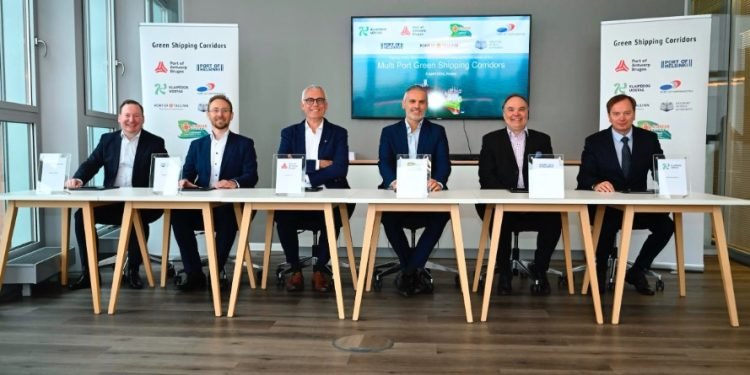As the global shipping industry faces increasing pressure to decarbonize, European ports are taking the lead in establishing green fuel hubs to support the transition to low-emission shipping.
The Port of Rotterdam, Port of Antwerp-Bruges, and Hamburg Port Authority have recently announced major infrastructure projects to expand sustainable fuel options such as green hydrogen, bio-LNG, and ammonia-based fuels.
With the International Maritime Organization (IMO) targeting net-zero emissions by 2050, European shipping leaders are pushing for:
- Expanded hydrogen bunkering stations to support next-generation hydrogen-powered vessels.
- Investment in ammonia fuel production, a cleaner alternative to traditional marine fuels.
- Strengthening the EU Emissions Trading System (ETS) to encourage shipowners to transition away from heavy fuel oil.
Shipping giants such as CMA CGM, MSC, and Hapag-Lloyd have already started retrofitting their fleets for dual-fuel compatibility, ensuring their vessels can operate on low-carbon alternatives as regulations tighten.
While green fuels remain more expensive than conventional marine diesel, governments and industry leaders are optimistic that continued innovation and policy incentives will drive costs down, making sustainable shipping the new standard in global trade.























